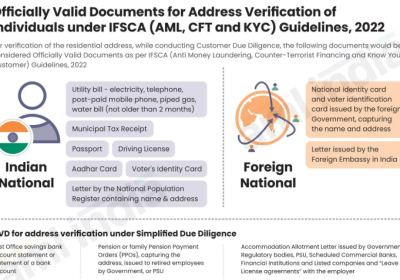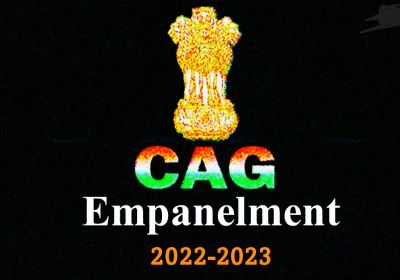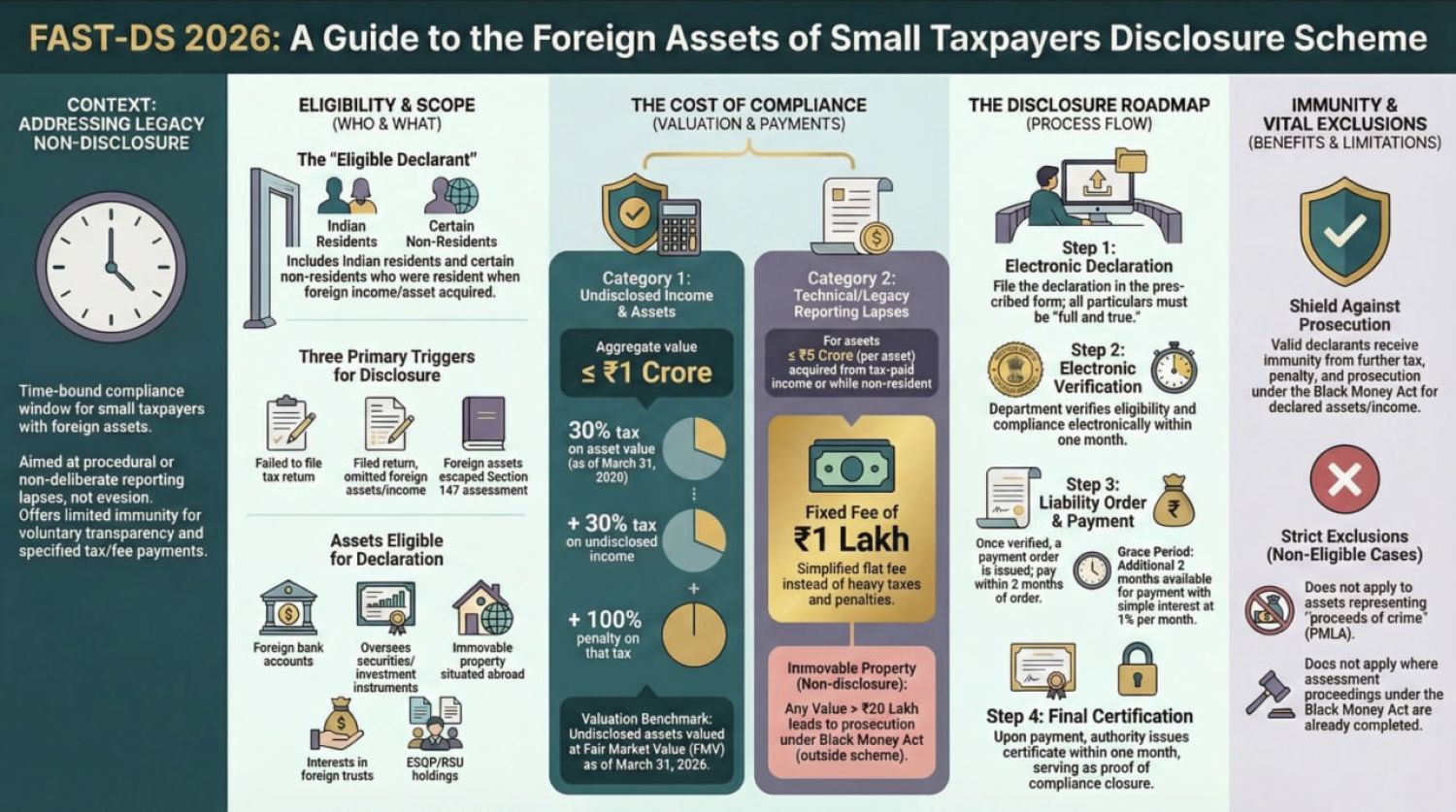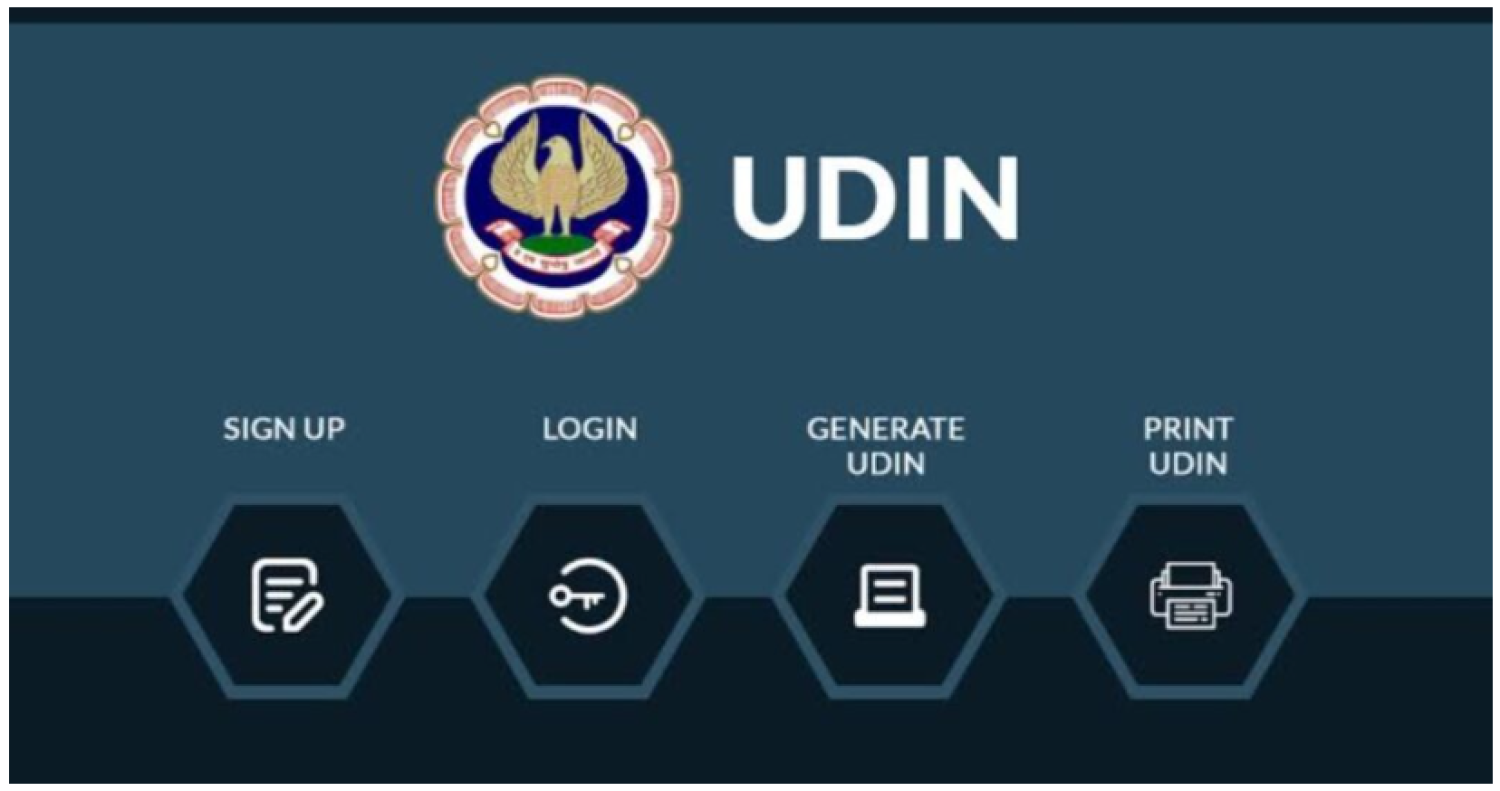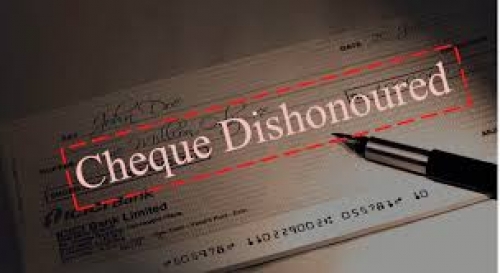
Cheques are used in almost all transactions such as re-payment of loan, payment of salary, bills, fees, etc. A vast majority of cheques are processed and cleared by banks on daily basis. Cheques are issued for the reason of securing proof of payment. Nevertheless, cheques remain a reliable method of payment for many people. On the other hand, it is always advisable to issue crossed “Account Payee Only” cheques in order to avoid their misuse.
In legal parlance, the author of the cheque is called ‘drawer’, the person in whose favour it is drawn is called ‘payee and the bank who is directed to pay the amount is called ‘drawee’.
Dishonour of cheque
Dishonour of cheque or cheque bounce occurs when a cheque that is presented in the bank is returned unpaid. It could occur due to insufficient funds in the bank account of the person who has issued the cheque or the signature on the cheque is not matching with the original signature of that person. You can proceed against the person who has issued such a cheque under various provisions of law. The most important and useful provision to consider is Section 138 of The Negotiable Instruments Act.
Steps to initiate prosecution on Dishonour of cheque
To initiate prosecution under Section 138, three condition precedents need to be fulfilled as below:
- The cheque should have been presented to the bank within three months of its issue or within the period of its validity. (The validity of cheques were considered to be six months previously; however, Reserve Bank of India vide Notification No. RBI/2011-12/251DBOD.AML BC.No.47/14.01.001/2011-12 by Reserve Bank of India directed that the validity period of cheques be reduced from six months to three months with effect from 1st April 2012.).
- The payee [Person who receive the money] should have made a demand to the Payor [Person who is liable to pay the money] for payment by registered notice after the cheque is returned unpaid.
- The Payor should have failed to pay the amount within 30 days of the receipt of the notice.
- If only all the above three conditions are satisfied, the prosecution can be launched for the offence under Section 138.
Legal action
The Negotiable Instruments Act, 1881 is applicable for the cases of dishonour of cheques. This Act has been amended many times since 1881.
According to Section 138 of the Act, the dishonour of cheque is a criminal offence and is punishable by imprisonment up to two years or with the monetary penalty or with both .and is punishable by imprisonment up to two years or with the monetary penalty or with both.
If the payee decides to proceed legally, then the drawer should be given a chance of repaying the cheque amount immediately. Such a change has to be given only in the form of notice in writing.
The payee has to send the notice to the drawer with 30 days from the date of receiving the “Cheque Return Memo” from the bank. The notice should mention that the cheque amount has to be paid to the payee within 15 days from the date of receipt of the notice by the drawer. If the cheque issuer fails to make a fresh payment within 30 days of receiving the notice, the payee has the right to file a criminal complaint under Section 138 of the Negotiable Instruments Act.
By whom -prosecution under Section 138
The prosecution can be launched against the payor and in the case where a company has committed an offence under Section 138, then not only the company but also every person who at the time when the offence was committed, was in charge of and was responsible to the company shall be deemed to be guilty of the offence and be liable to be proceeded against.
Amendment in relation to cheque dishonour
The Cabinet has approved an amendment to current law to allow for payment of an interim compensation in cheque dishonour cases with a view not to allow unscrupulous elements holding payments, pending long trial, sources said. An amendment to the Negotiable Instrument Act will allow a court to order for payment of an interim compensation ( interim compensation can be an amount not exceeding 20 per cent of the amount of the cheque) to those whose cheques have bounced due to dishonouring parties.
If the drawer is acquitted, the court may direct the payee to repay the amount paid as interim compensation with interest.
The said interim compensation has to be paid within a period of 60 days from the date on which the order to that effect is made.
Appellate courts would be enabled to order the appellant to deposit a part of the compensation awarded by the trial court at the time of filing the appeal.
The said amount of interim compensation may be recovered in the manner provided under section 421 of CrPC – by way of attachment and sale of any movable property of the drawer.
The best policy to avoid a cheque bounce in your account is to NEVER write a cheque without money in your account.
Cheque Bounce: Supreme Court Issues Guidelines for Early Disposal of Cases
Under Section 138 of the Negotiable Instruments Act, the Supreme Court issued a set of instructions to speed up the trial of cheque dishonour cases. The suo moto case was filed on March 7, 2020, by a bench of CJI Bobde and Justice L Nageswara Rao to create procedures for expedited trial of Section 138 NI Act matters.
The Supreme Court established a group to recommend specific ways for quickly resolving the more than 35 lakh check bounce complaints that have been filed across India. The team, chaired by RC Chauhan, a former Bombay High Court judge, has been asked to deliver a report in three months with recommendations for how to deal with the problem that has been clogging the subordinate courts.
The court had previously stated that cheque bounce cases accounted for around 30% of all cases pending in the judicial system and that no judicial impact assessment was conducted when cheque dishonour was criminalised under the Negotiable Instruments Act in 1988.
The order came from a five-judge bench led by Chief Justice of India Sharad Arvind Bobde, which had described the matter as "grotesque" last week and recommended that the Central Government enact legislation to create additional courts for a limited time to deal with cases of cheque dishonour. Directions were issued by a bench consisting of Chief Justice of India SA Bobde, Justices L Nageswara Rao, BR Gavai, AS Bopanna, and S Ravindra Bhat.
1. Magistrates will receive practise directions from the High Courts governing the conversion of a summary trial to a summons trial.
2. Before issuing summons to an accused who reside outside the territorial jurisdiction of the Court, the Magistrates must conduct an investigation.
3. Under Section 202 of the Code of Criminal Procedure, evidence on the affidavit is admissible in court.
4. A suitable change to the Negotiable Instruments Act. is recommended to enable a single trial for several claims resulting from the same transaction, despite the CrPC ban.
5. High Courts should issue practise directives to Magistrates, instructing them to treat service of summons in one case as deemed service against the offender in all other complaints resulting from the same transaction.
6. The Magistrates do not have the power to review or recall summons issues. The provisions of Section 258 of the Criminal Procedure Code do not apply to actions brought under Section 138 of the Negotiable Instruments Act.t.
7. The provisions of Section 258 of the Criminal Procedure Code do not apply to actions brought under Section 138 of the Negotiable Instruments Act.
8. Appropriate changes to permit the Magistrate to recall and issue summonses are recommended. According to the mandate of Article 247 of the Constitution, the Central Government has the obligation to construct extra courts to relieve the strain imposed on the judicial system by the Negotiable Instruments Act.

